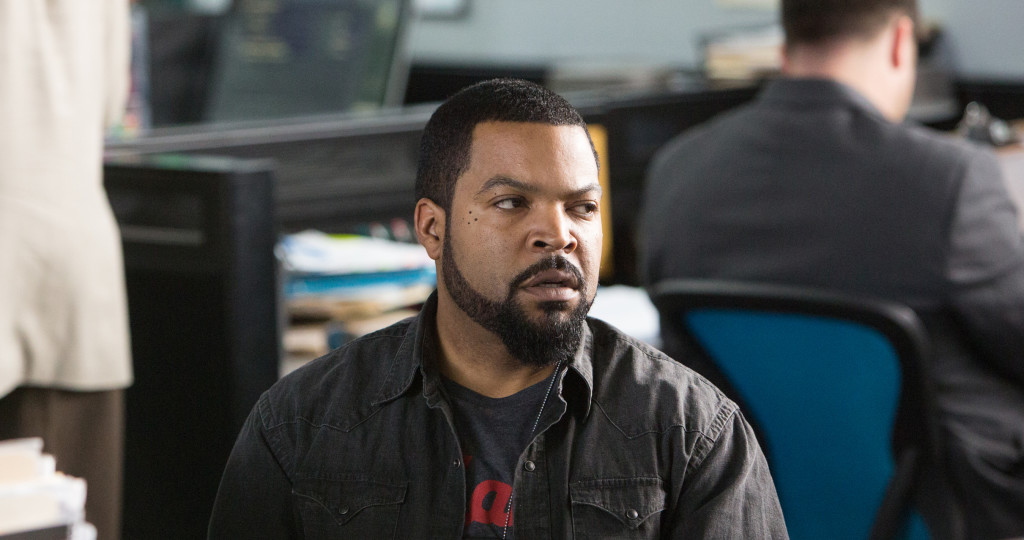Today we talk about the danger of a weak premise as well as a little-known structural pitfall that can spell doom for your screenplay long before you’ve written it.
Genre: Comedy
Logline: On the last day of school, a mild-mannered English teacher manages to upset his co-worker, who then challenges him to a fight at the end of the day.
About: This script sold last year and will star Ice Cube and Charlie Day (It’s Always Sunny In Philadelphia) in his first leading man role. It was written by Van Robichaux and Evan Susser, the team who came onto the scene when their script, “Chewie,” which documented the making of Star Wars through Peter Mayhew’s eyes, finished in the top 10 of the 2011 Black List.
Writers: Van Robichaux & Evan Susser
Details: 109 pages – December 17, 2014 draft
I remember when this script sold and there was a ton of backlash. “They’re not buying any scripts,” people said, “yet when they do buy one, it’s a comedy about a fist fight??? Can we possibly dumb down the spec trade any further?”
I’ll admit that when I hear a comedy idea that doesn’t contain irony (Old School, Liar Liar, Neighbors), I wouldn’t say I dismiss it out of hand. But I worry. The top dogs know the key to comedy is irony. Any time you’ve heard a comedy idea where you’ve gone, “That’s a great idea,” 99% of the time it’s because the premise contained irony.
Here, I see a teensy bit of irony. Instead of kids getting in a fist fight, adults do! But not nearly enough to inspire an entire movie.
If there’s little-to-no irony, I turn to requirement #2: Does the concept promise a lot of jokes? So for example, if I gave you guys the premise for Neighbors before it was turned into a movie, I bet all of you could come up with ten scenes to exploit that premise off the top of your head.
Here, we have a fist fight. I don’t see a plethora of jokes stemming from that.
If irony and multiple joke potential are out, I turn to requirement #3: Does the writer have a unique voice? Because writers who see the world differently and have a unique sense of humor can find humor in the mundane. Look no further than Charlie Kaufman.
Here, this looks to be a straight mainstream comedy. So “voice” is out the window.
If all else fails, we come to requirement #4: The writer is stomach-hurts-because-I’m-laughing-so-hard funny. If someone’s funny, they’re funny. And while they’re going to be fighting an uphill battle due to their weak premise, they can still draw upon hilarious observations, great jokes, and funny dialogue, because they’re funny! I’ve seen bad ideas saved due to the writer being hilarious.
Let’s see if that happens here.
Campbell is a high school English teacher who has to provide for two young daughters, one more on the way, his wife, and his wife’s mother. Times are tough even when things are going well in Campbell’s career.
And now, they’re not going well. It’s the last day of school and word is that Campbell has a 50/50 chance of getting fired due to budget cuts. So he’s already on edge when he shows up to a school where out-of-control teenagers are doing everything in their power to make their teacher’s lives miserable.
As Campbell jumps around, avoiding the 10,000 traps the students have set, he witnesses the psycho history teacher, Mr. Strickland, nearly decapitate a student for screwing with a screening of Strickland’s favorite documentary.
The principal asks Campbell what he saw, and Campbell is forced to tell the truth. This is a bad idea, since Strickland finds out and decides that he and Campbell must now fight after school. Campbell, a born wimp, does everything in his power to get out of this ridiculous duel, but all his efforts fail.
In the meantime, he’s waiting for his exit interview to explain why he needs to be kept on staff. Should that interview go bad, there’s a good chance he and the five women he lives with will be evicted by Andrew Garfield and Michael Shannon (sorry, indie film joke there).
Will Campbell keep his job? Even if he does, will he be pummeled into submission by a psycho in front of the whole school? Wait for the trailer to “Fist Fight” to arrive as I’m sure it’ll provide us with the entire movie.
So here’s the thing.
Barely anything works here. And this is what you get when you’re working with a weak premise.
A good premise tells you where to go. When you’re in the fields of page 55 and you don’t have anything left, a good premise points the arrow for you. The Hangover knows that we gotta get to Doug. So when you’re in trouble, come up with some shit that gets us closer to Doug!
And that’s what’s wrong with Fist Fight. See, Fist Fight doesn’t give the hero a goal to work with (a “Doug”). It gives him a time he must be somewhere by. This now puts the writer in a predicament. He has to come up with things to do UNTIL THAT TIME ARRIVES.
That’s a lot different than working with a goal, where your hero will actively pursue things. In this script’s scenario, it’s kind of like you’ve shown up to the dentist an hour early and need to figure out how to kill time until your appointment starts. Is there a chance that you’ll fill up that time productively? Possibly. But it’s much more likely you’re going to surf your phone aimlessly and play Candy Crush.
That’s why these setups scare me. They make you look at the structure the wrong way – as a time killer.
And we see that here. You can feel the writers desperately trying to fill in space. At one point, there’s a mediation from a third teacher to try and stop the fight. We also get a flashback scene accompanied by a Strickland voice over to explain why this fight needs to happen. Why are these scenes in the movie? Because they fill up time.
But it’s not just that. It’s that the concept predicated that we approach the plot in this manner. The issue was there long before you had to write the mediation scene.
These situations almost always lead to wonky plotlines, such as Campbell being ordered by the principal to ask Strickland to resign since he doesn’t want to fire him himself. When that fails, Campbell comes up with the idea that if he can get the kid who Strickland attacked to withdraw his statement, then the principal can’t get rid of Strickland and Strickland won’t want to fight anymore.
Yeah, these are the things driving the story.
The fault of this script always came down to one thing. We knew it when it was announced. It’s too thin a concept. And it reads that way.
The only reason I didn’t give it a “what the hell did I just read” is because I think there’s potential for another story. Call this, “Last Day” and focus on the crazy shit that students pull on the last day of school. That’s the strength of this script anyway – the kids pulling pranks on the teachers. Imagine a darker version of Ferris Bueller puppeteering the take-down of the entire school and a teacher who’s tasked with stopping him. That could be fun. What I just read wasn’t fun.
[ ] what the hell did I just read?
[x] wasn’t for me
[ ] worth the read
[ ] impressive
[ ] genius
What I learned: I’ve said this before. If your premise centers around an activity that could easily be a subplot in another movie, you probably don’t have a big enough premise. Fights happen all the time in movies. So to make that the main plot is a tough sell. I’m not saying it can’t work. It’s a hell of a lot harder though. Why not save yourself the headache and come up with a bigger premise?



